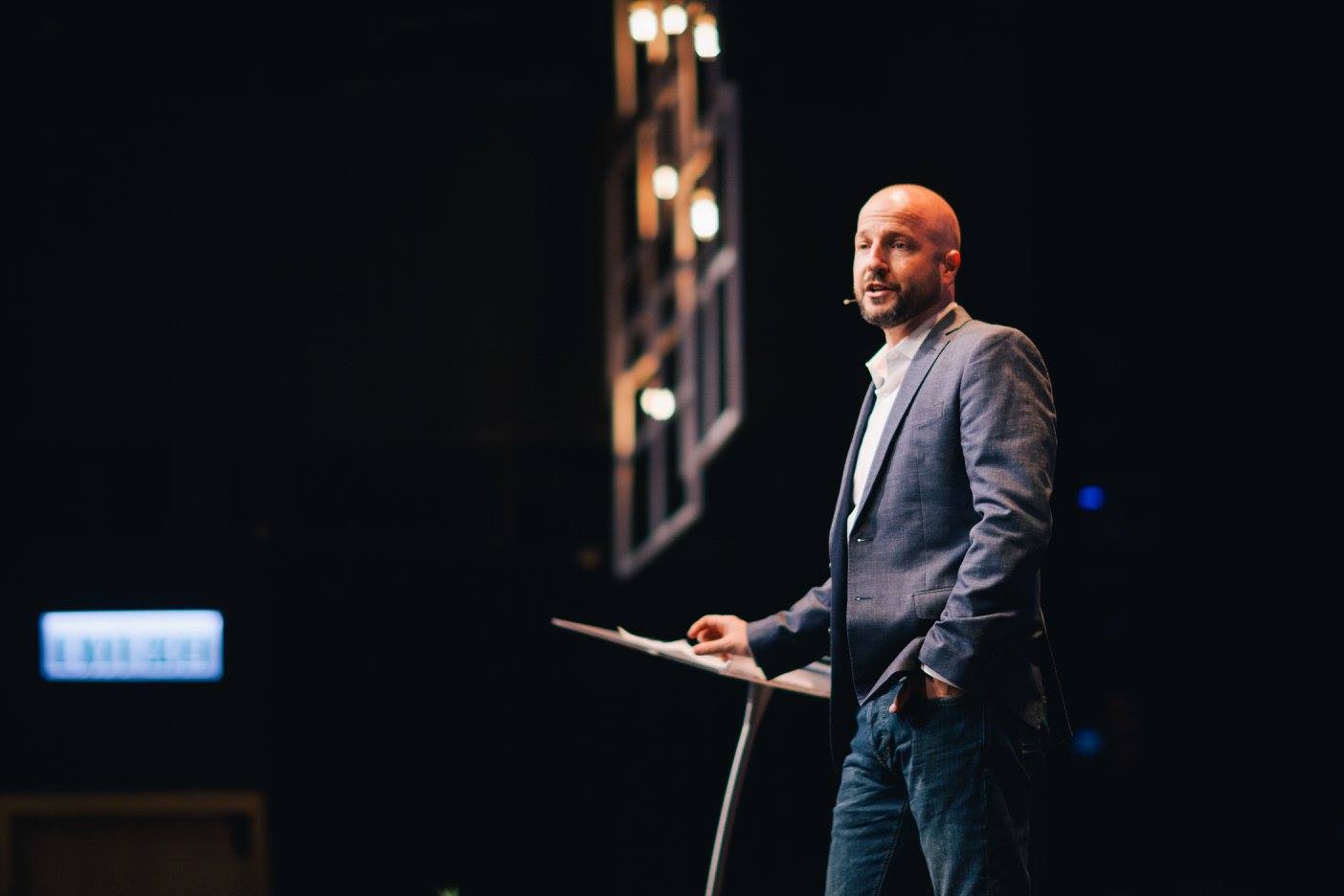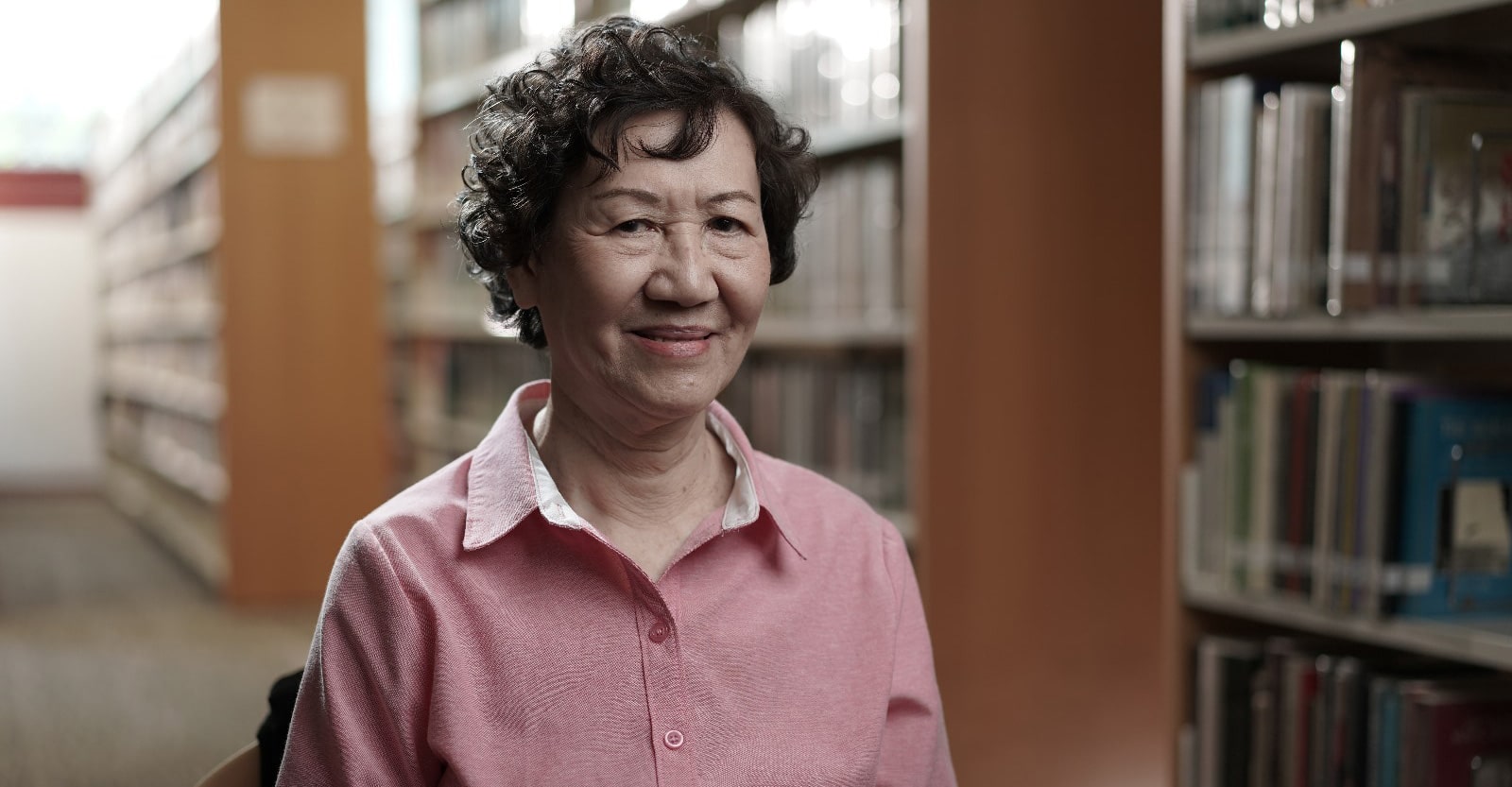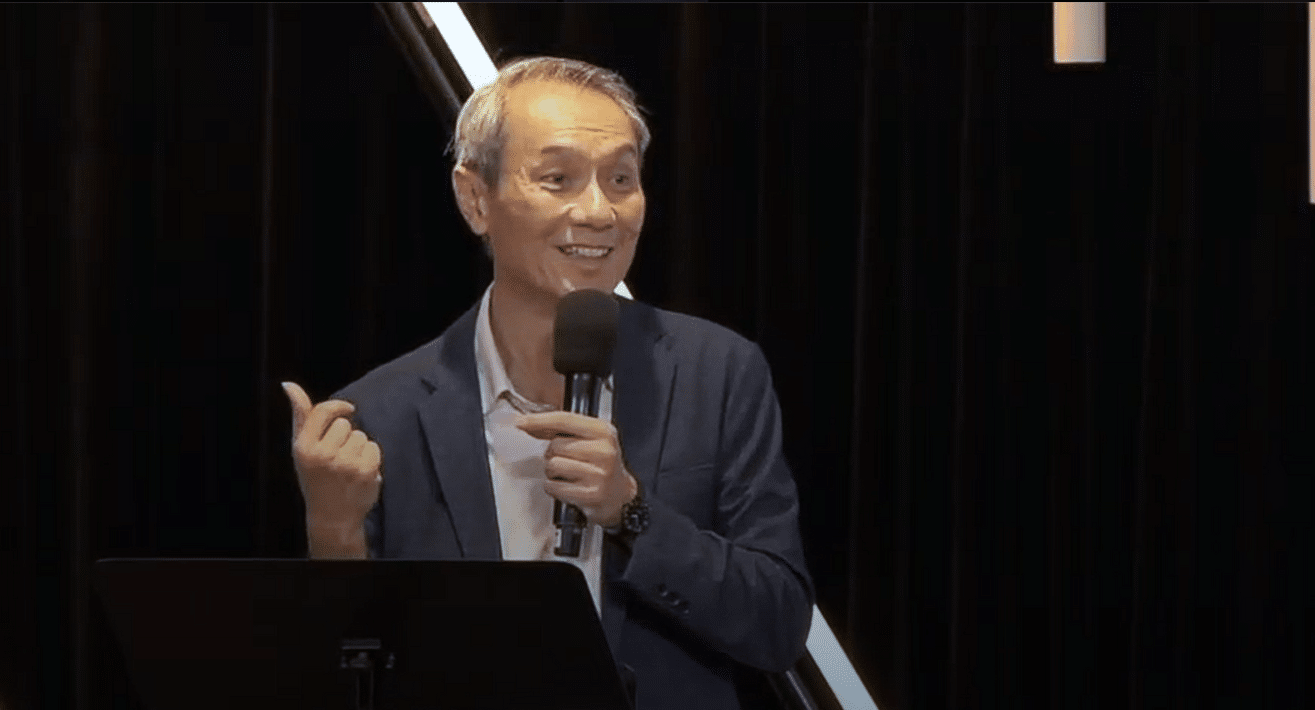“Social justice without the Gospel is like a cut flower”: Ken Wytsma, founder of The Justice Conference
Salt&Light // September 18, 2019, 5:58 pm

Ken Wytsma speaking at an iteration of the conference in Hong Kong in 2017. Photo from The Justice Conference Asia Facebook page.
There has always been tension when it comes to discussing the issue of social justice among Christians. Some fear that an emphasis on meeting physical needs would detract from spiritual matters. Others feel that purely focusing on getting souls saved would be to the detriment of showing neighbourly love.
There are dangers to both extremes, and one of the pastors attempting to push the conversation forward is Ken Wytsma, the founder of The Justice Conference, which has had iterations in eight countries so far. Singapore will host the ninth one come October.
The conference aims to help participants understand that efforts to address injustice must come “first from our knowledge of and relationship to God”, said the lead pastor of Village Beaverton, US. Wytsma is also the founder of Kilns College, an online college that offers programmes in theology and social justice.
In an e-mail interview with Salt&Light, Wytsma talked about what to expect at the upcoming conference in Singapore, as well as how Christians should deal with contentions in the area of social justice.
Q: How can each of us critically see and accept our own privilege, and what should we do after recognising it?
Wytsma: Seeing privilege is a question of exposure to various cultures, peoples, and experiences. Accepting privilege is a question of one’s heart, willingness to seek truth and pursue justice, and, ultimately, the desire to follow and be like Christ. The conversation about privilege, thus, seems to be one about education, exposure, and discipleship taken together. Also, like most things that have to do with maturity, it is a process that comes layer by layer and through twists and turns. A commitment to learning some of the harder truths about life is actually a commitment to a life of truth. If we can find others who are open to similar journeys, we’ll be much better prepared to encourage and be encouraged along the way.
Q: Some people say there is nothing wrong with inequality as God gave each of us different talents. What is your response?
Wytsma: Inequality isn’t the issue – systems, structures, and injustice that creates an inequality of opportunity or an inequality for some so that others can have more, is the issue. The kingdom Jesus calls us to imagine is one where we collaborate, create and sacrifice in order to bring others along with us. For, in the end, we are our “brother’s keeper”.
Q. Is there a wrong way to pursue justice?
Wytsma: I think one of the common pitfalls of justice is where the means get distorted in pursuit of the ends. True justice resides in the methodology as well as the aims of our justice efforts. We can also find that short-term quick-fix solutions can distort long-term justice needs. Pursuing justice, like anything else significant in life, requires that we do enough study, examination, and collaboration in order to accurately have the wisdom and knowledge to do more good than hard.
Q. What do you think is missing in the Church’s conversation about social justice today?
Wytsma: Ironically, I think theology is missing in the social justice conversation. Social justice, without theology or the work of Christ on the cross, can become an endeavour separated from its framework and source of energy – a cut flower if you will. Our knowledge of injustice today is so vast that it can sometimes absorb or overwhelm us, but our discipleship and our biblical theology are necessary for sustaining our justice efforts. Preachers and teachers who can connect these two will have a much more significant impact and a healthier way of informing and equipping their congregants.
Q. How do we make sure our faith and the Gospel is at the centre of the work we do?
Wytsma: I think it sounds simple, but remember our own sinfulness is a key to rightly ordered living. If we do, it will be His righteousness we seek, His grace we need, His forgiveness that empowers ours, and ultimately His kingdom we seek in loving response to all He has done for us.
Q. What do you hope the audience will get out of the conference when it comes to Singapore?
Wytsma: At The Justice Conference Asia, we will be discussing a lot with regards to a biblical theology of justice. The hope is that we will see that our understanding of God should compel our love for others, and that our love for others demonstrates our knowledge of God. Justice is a part of the character of God. Thus, in the final analysis, we are not coming to study a hot topic, a contemporary fad, or a group of niche causes, but to study God and have it transform the entirety of our engagement with and in the world.
Is the middle-class Church in Singapore getting too comfortable?
We are an independent, non-profit organisation that relies on the generosity of our readers, such as yourself, to continue serving the kingdom. Every dollar donated goes directly back into our editorial coverage.
Would you consider partnering with us in our kingdom work by supporting us financially, either as a one-off donation, or a recurring pledge?
Support Salt&Light



